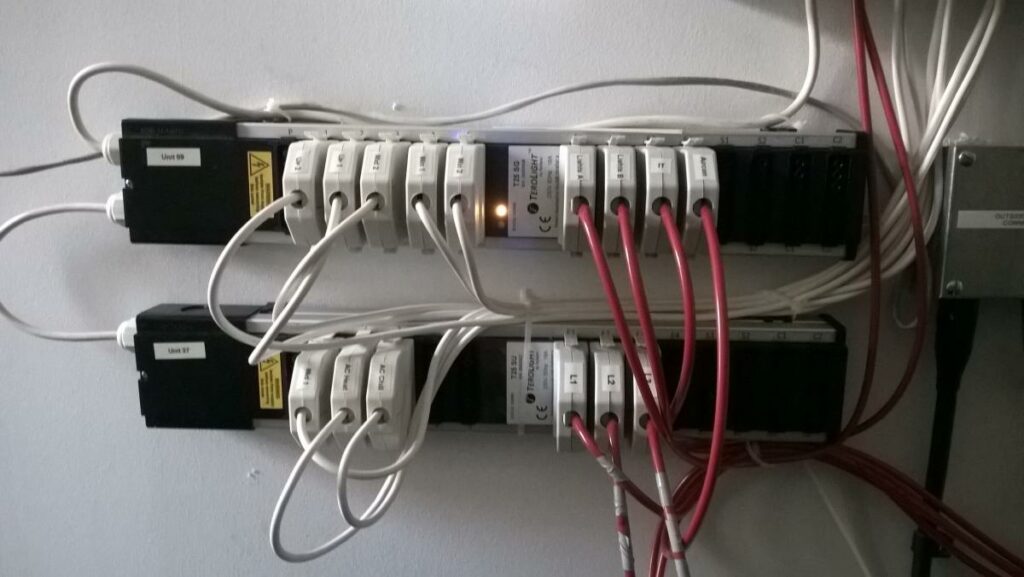Engineering solutions provider Costain is achieving a significant savings on the electricity bill of one of its temporary site buildings thanks to the trial of a new energy management system.
The ASSEMBLE project aims to develop a low cost, easy to install energy management system for small to medium size non-domestic premises. It uses the Terolight EM system from Nottingham based specialist TerOpta, which has been installed at Costain’s site accommodation at Junction 34 of the M1.
Costain was attracted to the project, which also involves Nottingham University and the National Energy Foundation and is being funded by Innovate UK, as it offered a way to monitor and control energy usage at temporary sites.
The ten-month trial began in December 2015 when the system was retrofitted in the M1 site’s office block and adjacent welfare block. According to Costain’s project environment manager Matt Kingsley, the results are already proving to be beneficial.
“By reducing the temperature in the welfare block a few degrees, we’ve achieved a reduction in our electricity bill of more than £2,000 a year – that’s easily a 20% saving. And in our training room alone, we’re on course to save more than £400 a year, again just by maintaining an even temperature,” he said.
“Better still, we’ve not received any complaints so we’re achieving our aim of reducing the amount of energy we use without affecting the buildings’ users.”
Kingsley added that the system was also helping to identify faults in equipment at the site after it registered a drop in the performance of one of the heaters.
“We realised that it had failed and were able to intervene to repair it before the heater burnt out. I believe that for every £1 we make in direct energy savings, we also save £1 in equipment maintenance,” he added.
The ASSEMBLE project says this evidence of energy savings has already fed through to tangible reductions in energy consumption and preliminary analysis is showing significant cost saving benefits.
The success of the project could result in a viable energy management system becoming available for temporary site buildings which often are not fitted with such systems.
Michael Sharratt, chief executive of TerOpta, explained: “These types of building are often ‘off grid’ and powered by diesel generators and so can be expensive to run. Conventional energy management systems are too expensive to install in a building that may only have a lifetime of two to three years. They can also be too complex for the building’s users to adjust and control.
“That’s why we have developed a cheaper, simpler system that’s quick to install and can be easily controlled via any internet-connected device. And when the job is finished, it can be removed and taken on to the next project.”






